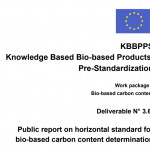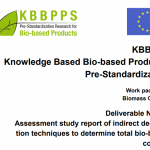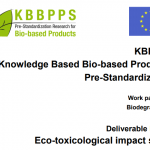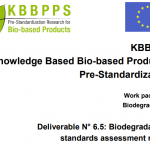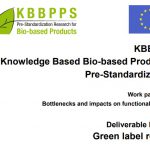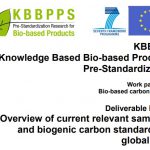Public report on horizontal standard for bio-based carbon content determination
This report describes the approach proposed in the CEN standard EN 16640 (Bio-based products – Determination of the bio-based carbon content of products using the radiocarbon method)

